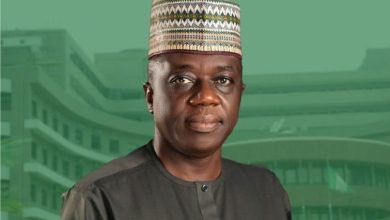Gas and Petrol Supply Under Threat as NNPC Battles Power Tariff Crisis
NNPC is facing unpaid power tariffs and huge sector debts that threaten gas delivery and electricity supply.
The government is pushing fast reforms to protect gas supply, keep the lights on, and check rising petrol prices.
Nigeria’s electricity and fuel supply chains are facing growing instability as the Nigerian National Petroleum Company Limited (NNPC) grapples with unresolved electricity tariff challenges and mounting debts in the power sector. The situation, if not addressed urgently, could severely impact gas supply to critical power plants and lead to wider economic disruptions.
The Federal Government, aware of the looming threat, convened a high-level meeting at the NNPC Towers in Abuja, bringing together the Minister of State for Petroleum Resources (Gas), Ekperikpe Ekpo, and Finance Minister Wale Edun, alongside NNPC executives. Dr. Salihu Jamari represented the Executive Vice President of Gas, Power, and New Energy at the discussions.
A statement by Ekpo’s media aide, Louis Ibah, confirmed that the meeting focused on resolving financial and policy bottlenecks affecting gas-powered plants in Maiduguri, Okpai (Phase 2), and Kano (Phase 1). Officials at NNPC raised the alarm over delayed payments and widening pricing gaps in the electricity market, warning that failure to act could result in power outages and economic setbacks in key regions.
“NNPC Ltd warned that without timely intervention, power supply to key regions may be jeopardised, with potential economic and social impacts,” the statement noted.
Minister Ekpo highlighted that solving these challenges is essential to harness the full potential of Nigeria’s gas-to-power infrastructure, especially for improving grid supply in underserved areas like Maiduguri and Kano. He stressed that the gas value chain must be protected to sustain power delivery and economic stability.
Finance Minister Edun echoed the urgency, urging collaborative financial planning across all stakeholders in the oil and power sectors. He acknowledged the unsustainable cost of electricity subsidies currently exceeding ₦200 billion monthly, which have left Distribution Companies (DisCos) struggling to recover enough revenue, thereby defaulting on payments to power generators and gas suppliers.
The meeting concluded with plans to include the Minister of Power in a follow-up session aimed at developing actionable and sustainable solutions.
Petrol price hike adds pressure
In a related development, the NNPC has raised petrol prices across the country. In Lagos, the pump price of Premium Motor Spirit (PMS) has increased from ₦915 to ₦925 per liter, according to checks conducted on Wednesday, June 25, 2025. This follows a recent nationwide fuel price adjustment, further fueling concerns about inflation and household energy costs.
As Nigeria continues to face systemic financial challenges in the power sector, the government is under increasing pressure to reform tariff structures, reduce subsidy burdens, and implement a robust cost-recovery framework that ensures reliable gas supply, electricity stability, and long-term energy security.



